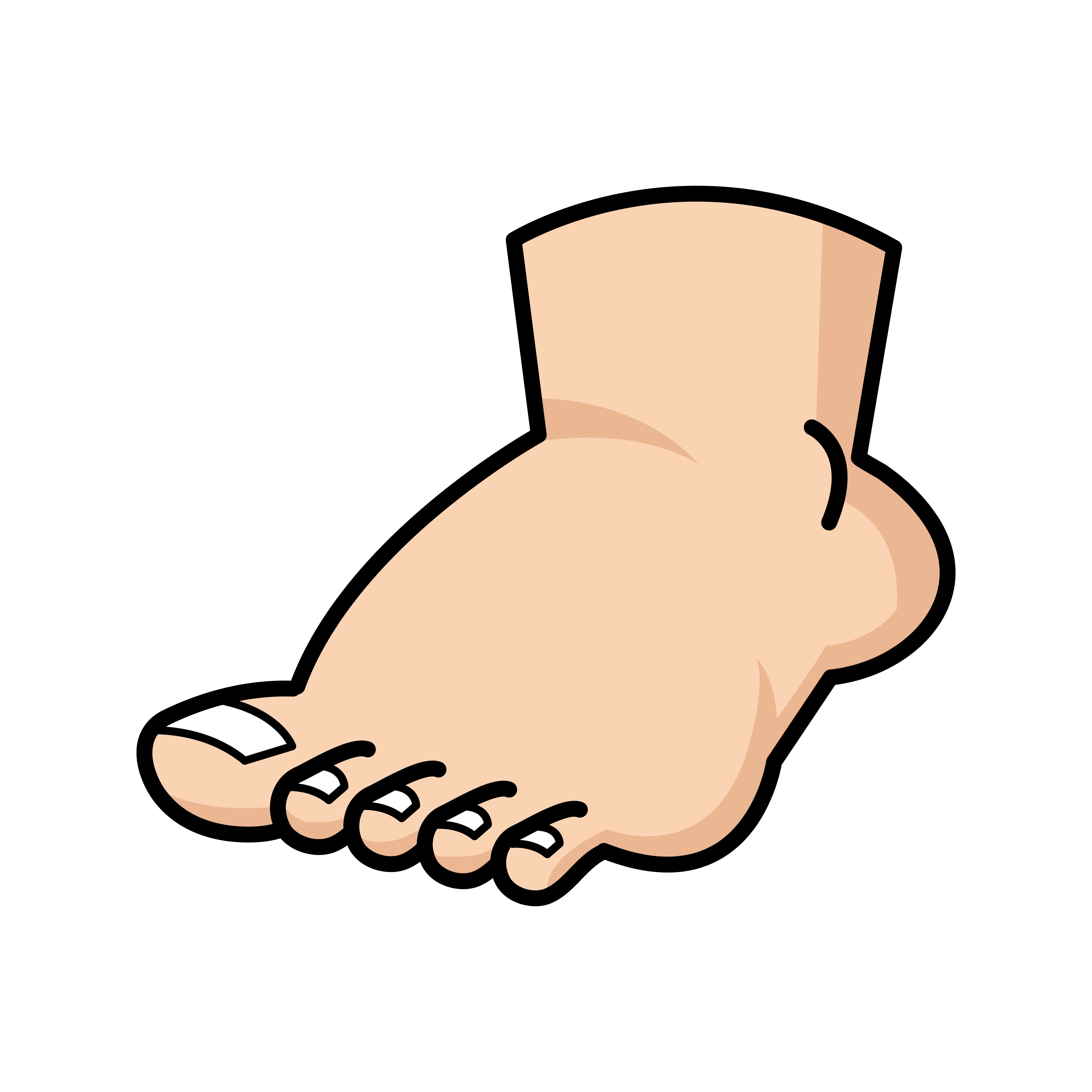Hello. For context, I am in a university. I do not have any friends, and it feels like colleagues talk bad about me. This makes me quite hesitant to join any circles or attend seminars. I am not sure it is everyone who thinks bad about me though, I fear about asking. Yet I plan to do research, so I should attend seminars to learn current trends and stuffs. May I ask what I should do in such a situation? Are friends necessary, or not really? Also should I stop being in this environment and get a job instead? Thanks for reading lengthy paragraph, I would love any comments or advice for this.
If you are neurodivergent, it might be worth looking into Rejection sensitive dysphoria and Social phobia.
It may feel like others are judging/bad talking you but that may not be the case.
Speak to a GP or psychologist, they can help with these types of issues.
Psychotherapy does not particularly help patients with RSD because the emotions hit suddenly and completely overwhelm the mind and senses.
Hard disagree from me, dawg. Rejection sensitivity is a super common target behavior in psychotherapy treatments like DBT and RODBT, and it’s super treatable with those modalities. This article saying “only drugs work” is uninformed and misleading
Thats why I said to speak to a GP or psych. In Australia, the GP is first line for diagnosis who then refers you on to psychologist or psychiatrist.
I’m just suggesting that based on what OP said, RSD could be a possibility and they should see a doctor for help if they are serious about improving their mental health etc.
I agree with all that, I just don’t agree with William Dodson, M.D., LF-APA. I tried to look up the “LF-APA” credential, btw, because I’ve never heard of it, and William Dodson appears to be the only person on the internet who has it. Anyone know what it indicates?
deleted by creator
Oh, does RSD symptom include the illusory hearing about badmouthing? That aside, I do think only some actively participates in badmouthing behavior, and many might be ambivalent. I am not sure about this, though.
I don’t know about illusory hearing as related to RSD but I do know that I had similar issues most of my life.
I used to think people were looking at me, talking about me and sometimes thought that they could hear/guess my thoughts. Started when I was a kid. Found out it was ASD-1 and a brain tumor causing alot of the issues.
And the only way I found out about that was by going to the doctor. I really do recommend speaking to a doctor about these issues and you might be surprised with what they find and how much better you feel once you can get the right therapy.
Thanks, I see that it could be related. That said, I’ve spoken about this issue to many doctors and psychiatrists, and it did not help - doctors just raised dosage, and psychiatrists told me to actually talk with people. Problem is, with my social anxiety, it is so difficult to talk with people…
Perhaps you could try friend-finding apps such as Bumble BFF? You’re likely to find others there in a similar position to yourself. It also focuses on 1 on 1 which should be a little easier to manage with social anxiety.
Everyone, just like you, are thinking about themselves. Nobody is thinking about you.
If you’re autistic, there’s a good chance that autistic masking is the root cause here. If you have social anxiety especially, your mask will kick in automatically (subconsciously) and come off as fake to most people, and they will not like you for it. A quick test for this is, are you good at making a good first impression or short time of friendship and then it kinda falls off with time? If yes, masking is likely in play. I highly recommend the book Unmasking Autism even if you’re not autistic. It applies to others as well and it is excellent.
The short term (maybe long term…?) solution is to make autistic friends. They’ll understand “the weird” and it should be much simpler. Try searching around your local area for autism or neurodivergent clubs and see how you feel around other similarly-minded people.
A quick test for this is, are you good at making a good first impression or short time of friendship and then it kinda falls off with time? If yes, masking is likely in play.
Can confirm. This is my entire life.
Might be time to do a little research my friend.
The extremely oversimplified and short version of it is, a trauma mask is something that kicks in automatically to protect you. Autistic masking is a form of trauma masking and it is fully automatic and usually not known to the person that they are doing it. We learn the skills to get through most normal social situations, but beyond that there is little development. So we do all the neurotypical things to blend in and it works until people realize that it’s fake, and then they feel like they’ve been deceived and they don’t like us.
The fix for this is, as you go on a journey of self-discovery and learn how to stop masking you will present yourself as your authentic self, and attract the right kind of friends. It is a difficult journey, and especially because almost always we don’t realize that we’re doing it at all. I don’t know if you believe that your neurodivergent or autistic, but I also believe that there are other neurotypes that are able to trauma mask similarly to autistic masking. You may find good company in an autistic community because they will understand how that works. There’s also something oddly comforting knowing that you’re in a group of “weird” people and it will help you get your real self out.
I am by no means an expert on this but I found out that I am autistic after over 30 years of living on this earth. Everything before that was fueled by masking and it has currently become the new most interesting thing that I know of. If I can help with advice or information, or if I can help by just listening, feel free to shoot me a DM!
Considering my high school life, it was kind of opposite - I had handful of friends then, but they went different path and it became hard to keep contact with. Others basically hated me, making fun of me and borderline bullying me.
I did become isolated in uni, I think I did stay away from others. Was too scared of making a mistake.
How likely is it that the people you were tight with were neurodivergent as well? Looking back, I had a huge friend group of probably 25-30 in high school (though I was only close with like 2 of them, and cordial/friendly with the rest) and this left me “off the scent” of discovering my Autism until my 30s. Looking back, I would be surprised if a single person in t hat group wasn’t Autistic or ADHD at least, if not several other things too. We were just lucky enough that we all found each other and didn’t judge. We considered each other “The Island Of Misfit Toys” or the “weird” kids, which I believe tracks well.
I also found myself to be very polarizing. Either I was super friendly with people or I was literally openly mocked with little in between.
I also had an isolating phase when I joined the military. I had maybe one to two friends at the best times, and none through most of the rest of the time.
Later in life (late 20s), I “perfected” my mask and got back on the social side of life but I wasn’t happy. Only recently have I learned what Autistic masking is and how to stop doing it, and I’m fairly close with about 6 people now, which is the most real friends I have ever had.
That sounds likely for my high school days, but not for middle school ones. That said, people were likely less mature in middle school. I feel like I am very bad at masking, I wonder if it is in effect at all.
Clubs are a good call. Look into societies at your university, find something that you’re interested in or think you could be interested in. Societies are social in a way that seminars and other course activities are not. Don’t worry if you don’t “click” with anyone immediately, keep attending and do your best to engage in conversations.
I also recommend seeking out a university counsellor. Most universities will have them and their advice can be valuable.
Autistic and neurodivergent people are the only ones I can even begin to relax enough to have a conversation. I have a lot of baggage and being undiagnosed in school was extremely damaging. I love to talk, but I make people uncomfortable. So I usually just sit quietly somewhere, move seats/tables as bigger groups want the space, and eventually leave once the anxiety/torture becomes too overwhelming.
Not sure if this works for you, but when I’m in a socially confusing situation, I involve people. If you think someone is talking bad about you, ask them about it. Ask for guidance. If you ask someone for help, they will often remember it positively. It takes courage to ask for help, as it’s a sign of weakness, and people usually respect that you trust them with your request.
Ideally it will turn out to be a misunderstanding, or you get some constructive criticism, or you get a confirmation that people are actually talking bad about you. At least you will have more clarity. If there wasn’t really anything bad going on, now you’re still in a conversation. Even if you say thanks and end the conversation, you’ve broken the ice with that person.
Friends are very much necessary. You need people in your environment, other than your family, to exchange ideas with and talk about things that are on your mind. Don’t try to substitute friends with online relationships. It will never be equal. Finding local people with similar interests online is fine if that helps you to reach out. You can’t force making friends, it’s a waste of time. Start with making one friend. Quality over quantity
This is good advice. I was going to type something up, but this pretty much covers it. Listen to this person please OP.
I am too scared to do this in classroom…
What have you got to lose?
Asking to people a bit far away will be even more weird behavior. Currently, most people do not sit near me.
have you tried talking to someone after or before class?
The best way to get people to stop thinking you’re a “freak” is to spend time with them and show them you’re a nice person. It’s okay if you’re kind of unusual. Everyone is, so try not to worry about it. What you think of as weird traits become charming quirks to people who know you.
Of course, this is much easier said than done. I wish you the best. Just try to remember that nobody judges you as harshly as you judge yourself.
I see, but I am worried that the behaviors they hate on is exactly the autistic & social anxiety behaviors I exhibit.
Be careful about the things one does in response to being insecure. Some people react to the prospect of rejection by giving people a reason to reject them, so that the blow will be softer. That’s obviously not a great idea.
It’s alright to not be super talkative all the time. Reading up on social norms is probably a good idea if your have autism and find them challenging.
Think about first impression. Keep a good personal hygiene, try to wear clothes that make some sense, try to keep a good posture while not being too “stiff” - let your arms swing while walking and all that. There’s a bunch of these tiny things we do that change our perception of each other, and it can be good to be aware.
Keep in mind that you’re probably not dealing with a unitary group of people. You’re probably not the only person who doesn’t have friends yet. And some people will always not like you no matter what - if you have too many friends or are too charismatic, some people will dislike you for that as well. It doesn’t matter that some people don’t like you, what matters is to find some people one can get along with. Chances are there are people out there with a lot in common with you.
I see, but I am worried that the behaviors they hate on is exactly the autistic & social anxiety behaviors I exhibit.
You are worried, yes.
They do not hate, No.
Some people may find your behaviour extraordinary, and that is enough to maybe talk about. But there is a whole world between “find something extraordinary” and “hate”.
If you do never talk to people, then this is your behaviour. You can change it. You can talk to people. Case solved.
Some people may actually dislike those features, sure, but I don’t think most people will. You wouldn’t know it from watching the news, but people are more tolerant than you think, especially in college.
My purely anecdotal opinion, once you get into university and higher education, everyone is a bit autistic and socially stunted. Its almost a prerequisite.
it feels like colleagues talk bad about me.
What makes you say that? It’s pretty likely that’s just your anxiety talking.
I’m not exactly the most social—or even socially competent—person, but I know friends are important to have, especially if you don’t have family you can lean on. Friends can balance you out and provide alternate perspectives when you need them, and we all need them sometimes.
Also, I’m pretty sure having (good) friends is beneficial for your mental health. Having no friends can be detrimental to it.
Regardless of what you decide, I suggest putting yourself out there. Start slowly, and ask people about themselves. It can very difficult and stressful at first, but it does get easier over time.
It might be a good idea to make a pros/cons list for staying/getting a job; I’m sure there are other important factors to consider aside from the social climate.
I feel people are badmouthing me since I am hearing words like weirdo, freak, or disabled. It can be illusory, but I do think I hear them. It’s that my parents and psychiatrists say it cannot be real, so I might be mistaking something.
you are hearing voices and believe that people are talking about you. It’s symptoms of schizophrenia. Don’t take it as medical advice rather talk about it with your doctor.
Hearing things that other people say is not real is a serious problem. Please speak to a medical professional about this and listen to their advice. Take the medication that is prescribed to you.
Get a degree, get a dog, make art not friends.
Are friends necessary, or not really?
Unless you are independently wealthy, you will need the support of other people in your life. This is not avoidable - you must learn to live and work with other humans, and hopefully also enjoy their company.
The good news is that social skills are a thing that you can learn like any other skill. There are books about it, but the trouble with that is (1) advice in the book is cultural context dependent, and therefore most applicable in the time and place where the book was written, and (2) reading a book is an inherently non-social activity, and therefore not really contributing to developing the skill.
The best way to learn social skills is through observation and practice - which means that you will have to put yourself in situations that feel uncomfortable, until you learn enough that you become comfortable. This is a lot like learning to ride a bike - you feel clumsy, unsteady and slow at first but if you keep doing it you learn to stay balanced, and eventually it feels natural. You have to push yourself past the point of discomfort.
you must learn to live and work with other humans
That is not anywhere near the same as being friends with them.
I think whether or not friends are necessary depends on the person. People who are extroverted will feel like friends are a necessity. Meanwhile, introverts like me, are perfectly happy to be by themselves. Some introverts may want to have friends but only minimally or in small amounts, others are fine without them at all.
Introverts do not always lack social skills, its just that social interaction is exhausting. Telling someone to push past this may not be possible. Not everyone needs to be an extrovert, the only people that say that or think that way are extroverts. And, unfortunately for us introverts, the majority of people are some level of extrovert.
One of the things which has helped me is consistently reminding myself that everyone is focused way more on themselves than on me, that nobody realy gives a fuck about me (with a small handful of exceptions), and that my thinking that everyone is thinking about me at all is a pretty self-centered outlook itself.
Hi, are you neurodivergent by any chance?
Yeah, I suspect I am both mildly autistic and ADHD.
Okay, well I’ll try to answer your questions as directly as possible.
Attending seminars to learn about current interests is a very clinical approach, that won’t ever really capture what those trends are and you will appear to be even more of an outsider imitating the ‘insiders’. I personally wouldn’t recommend it, maybe try looking to find a group hobby that you can do with other people (DnD, walking, photography, book club, sports, etc).
Are friends necessary, or not really?
Necessary is subjective. But at least for me I find having some social connections I can talk with helps, and is overall a net positive on my quality of life. Also good friends can end up being with you for life, certainly a good investment.
Also should I stop being in this environment and get a job instead?
That depends, why are you in University? If it’s purely for academic learning, just focus on your studies. If it’s to gain life experiences as well, go out and seek people. If it’s neither, and you can’t think of any other reason to be in such an environment than maybe a job would be a good change.
I want to do research, that is why I am in the uni. Problem is, network effect is strong in academia, so being isolated is not great for that…
Are there any clubs that hold interest for you? Chess club, book club, drama club, small local bands? What kind of research? Anything pertaining to that?
Fanfic? Scifi? Creative writing?
I do not have particular interest other than gaming, tho I can maybe pursue an interest. Chess club sounds good, perhaps I’d try that!
That’s cool. There are probably gaming groups, if even informal. Look for those.
Thanks again, will do!
What is your background? Did you have friends in high school? How long have you been in university? Are you studying on campus? How do you know people are ignoring you? What country,or at least what general region?
Details matter. Provide whatever you feel comfortable providing.
Also, attending classes and circles are how you make friends. So if you are running away from the solution, expect the situation to stay the same.
Building community is important for most people, but it can be done at university, or elsewhere, or both.
Are you a boring person ? I’m in a similar situation and pretty much figured out that this was the issue
“Boring” people often have a good time with other “boring” people. So it’s maybe just a case of looking in the wrong places?
Ostracized and isolated are two very different things, do you think there’s an intent that’s actively excluding you or are you welcome but personally uncomfortable forming social bonds?
That’s the issue, I don’t know if they are actively warding me off or are just ambivalent. At least I am not welcome, that is for sure.
If you’re autistic: social settings have a plethora of unwritten rules that you have to follow to not seem weird to non-autistic people. Without knowing exactly why anyone would be badmouthing you, it’s likely that you already violated dozens of them without knowing it.
It’s possible to learn it though, I did it through reading about it and carefully observing soap operas scene-by-scene, watching every movement they make, every way they express themselves, guessing the purpose and seeing the effects.
The quickest way to learn is by having someone with the necessary skills observe you and giving you pointers, but this is hard to do apparently since you have no one you can trust?
I could help, but to help you, one really needs much more and much more specific information about your situation.
Removed by mod













